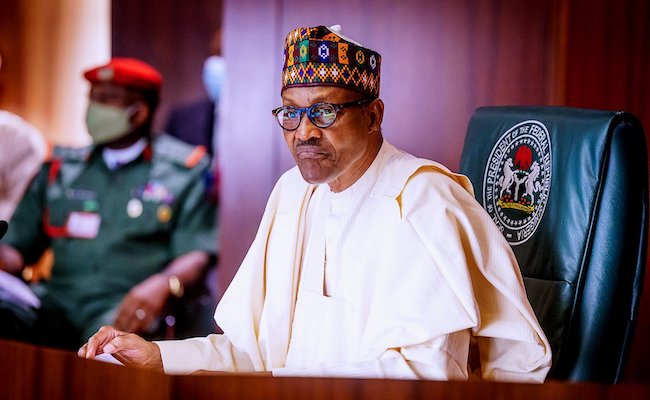Renewed offensive against Hate Speech and need for caution

In the last four years or thereabout of the present All Progressives Congress (APC)-led Federal Government of Nigeria, the issue of Hate Speech among the people of the country has become a major topic of discourse as the government has repeatedly spoken up against it and even threatened to go all out against the purveyors of hate speech.
While always pointing out the dangers of hate speech at every given opportunity, the government has insisted that the prevalence of hate speech possess great danger to the corporate existence of the nation.
The government had threatened to deal with anyone caught in the act of disseminating hate speeches and also the medium through which such is disseminated.
Though the government’s position is alleged by some critics to be aimed at gagging the opposition, the government has insisted that its aim is to ensure the continual peace and wellbeing among the populace.
However, last week the government came out with stiffer sanctions against hate speeches, especially against broadcast houses that open their doors to carriers of hate speech.
According to the Minister of Information and Culture, Alhaji Lai Mohammed, in the new directive issued in Abuja on Thursday at the 3rd Annual Lecture Series of the NBC, the Federal Government has directed the National Broadcasting Commission (NBC) to sanction any radio or television station that broadcasts hate speech, as part of efforts to stem the growing tide of hate speech in the country.
Mohammed, who cited the ignominious role played by a radio station in fueling the genocide in Rwanda in 1994, which led to the loss of over 800,000 lives in 100 days, charged the NBC not to allow the purveyors of hate speech to lead Nigeria to the path of destruction.
The Minister re-echoed the recent position of Vice President Yemi Osinbajo who said “that it is the resolve of the government that none will be allowed to get away with making speeches that can cause sedition or that can cause violence, especially because when we make these kind of pronouncements and do things that can cause violence or destruction of lives and property, we are no longer in control.”
The Federal Government therefore approved the review of the National Broadcasting Code and extant related laws to increase fines from N500,000 to N5,000,000 for breaches relating to hate speech, inciting comments and indecency.
In the new dispensation, a willful repeat of infractions on three occasions after an initial levy would attract suspension of broadcast licence.
Mohammed stated that President Muhammadu Buhari had equally sanctioned an upgrade of breach of divisive political remarks to ‘’Class A’’ offence in the Broadcasting Code.
While many people are yet wondering what the government may consider as hate speech because the government has yet to educate the people on what may constitute hate speech or the speeches within the terrain of freedom of speech, many are calling for caution, as the fear that the government may be looking for scape goats in the fight against hate speech has heightened.
Hate speech as commonly defined is “speech that expresses or incites hatred toward people on the basis of some aspect of their identity”.
Hate speech as speech that denigrates people on the basis of their membership in a group, has long troubled policy makers, causing the boundaries of free speech to be constantly renegotiated.
Hate speech is one thing that society must take seriously, not dismiss as something that might at worse hurt the feelings of some overly-sensitive people.
There is evidence that hate speech predicts violence, that groups more exposed to hate speeches are more likely to commit suicide, and that it causes what scientists call a ‘dehumanisation effect’ which makes it easier for us to justify suffering and harm caused to another human being.
Hate speech is usually considered in context of it being used against people on the basis of their ethnicity, nationality or religion, but it can in theory be used against any group.
Rwanda and Kenya, both countries that have experienced considerable violence in the past two decades, are useful case studies to discern when and how hate speech becomes dangerous speech.
It has been argued that in a heterogeneous and polarized country like Nigeria, hate speech threatens the nation-building process by widening the social distance among Nigerians, cementing existing distrust, and undermining national support. Hate speech can also negatively affect the economy.
While there is no denying the negative effect of hate speech and the potential danger that it possess in the country, the question begging for answer among many Nigerians is how the government intends to manage the implementation of laws and policies against hate speech in order not to infringe on the fundamental human right of individuals and breach the freedom of speech.
This is even more worrisome because of the fact that the Nigerian political space is full of vendetta and acrimony and no one in government wants to be criticised even when they do wrong and if those given power to superintend over cases of hate speech are those in the above bracket, how can they be seen to be fair?
This is more so in a country where the government has developed a new tactics of holding an accused for days and months on end in the guise of investigating the person’s offences and even when the person is eventually declared innocent by the courts, such individual would already have tasted the negative effect of power.
With these fears, it is our candid opinion that the government should set boundaries and hint on what constitutes hate speech, so the people are better advised.
It is also our view that the government should exercise utmost caution in implementing the anti-hate speech regulations, especially when it has to do with members of the opposition, as any such sanction could easily be considered as political victimisation and such will not augur well with the people.
There is no over-stating the fact that there is a very thin line between hate speech and free speech, therefore it is our considered view that there should be utmost caution and government must as a matter of urgency put machinery in place through the Federal Ministry of Information, using all its agencies and parastatals across the states and local governments to continuously educate the people on why they must avoid hate speech.
This is more so as punishing a person for an offence he or she is not aware of may be viewed as miscarriage of justice, and the government must work hard to avoid any semblance of such.







